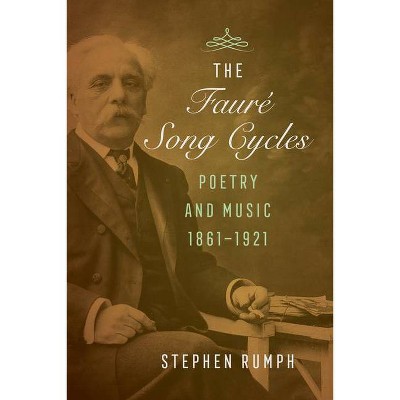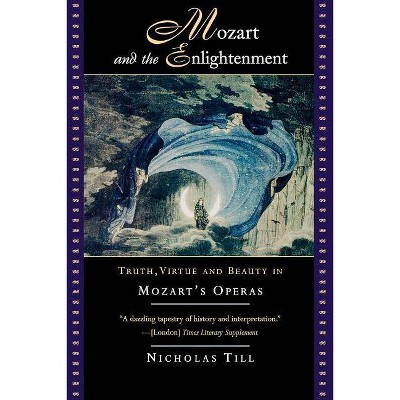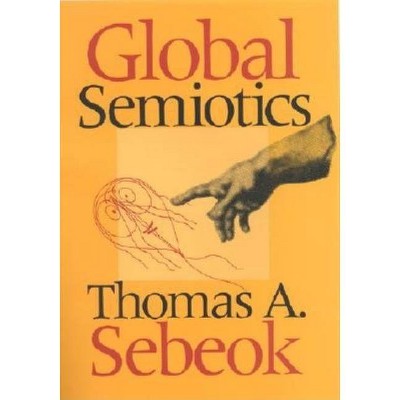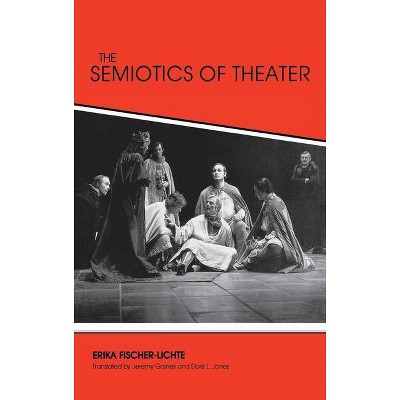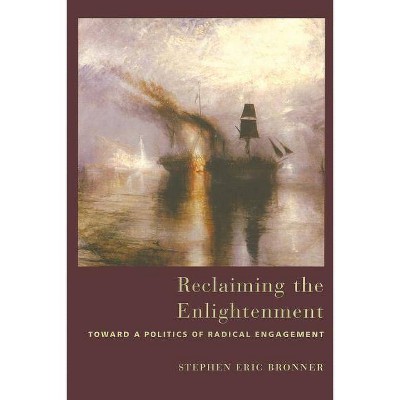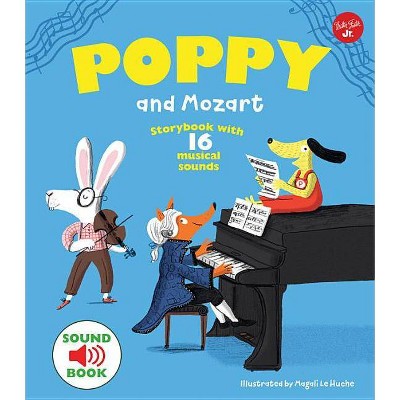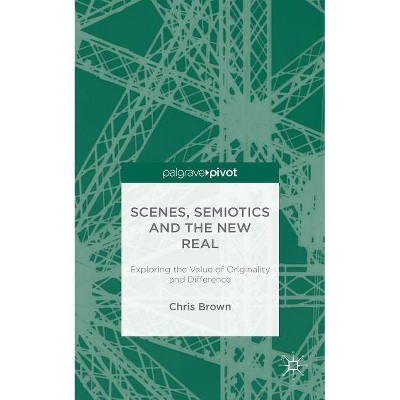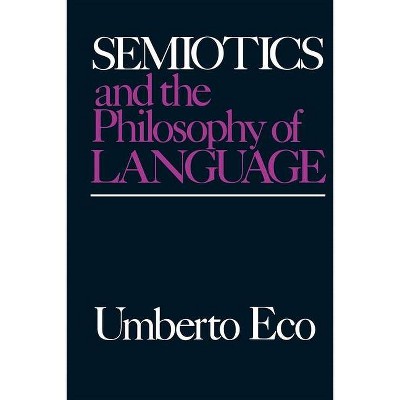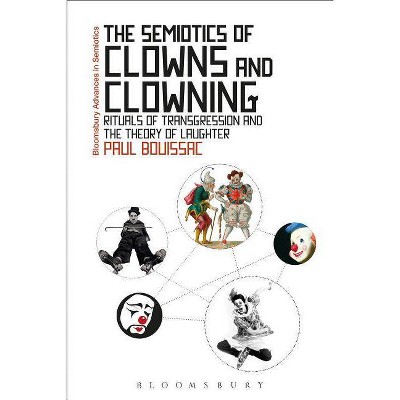Mozart and Enlightenment Semiotics, 14 - by Stephen Rumph (Hardcover)
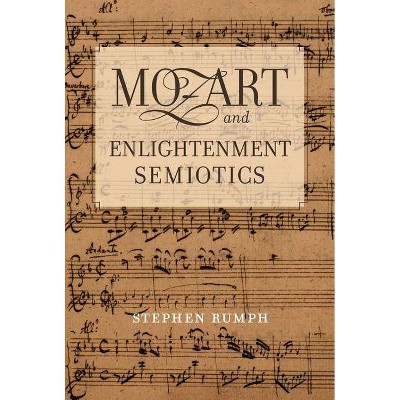
Similar Products
Products of same category from the store
AllProduct info
<p/><br></br><p><b> About the Book </b></p></br></br>"In "Mozart and Enlightenment Semiotics," Stephen Rumph shifts the ground of interpretation for late eighteenth century European music by reinstating the semiotics and language theory of the period. In so doing, Rumph challenges and reappraises current orthodoxies. These challenges are extremely valuable, bravely offered, and intuitively right as well as convincingly argued." <BR>--Matthew Head, author of "Orientalism, Masquerade and Mozart's Turkish Music" <P><BR>"Stephen Rumph's book is, to my knowledge, the first successful attempt to ground classical music in its contemporaneous intellectual context. In this respect, Rumph's book is a great achievement. It is an imaginative tour-de-force bursting with dazzling insights, and with an apparently encyclopedic range of intellectual reference in several languages." <BR>--Michael Spitzer, author of "Metaphor and Musical Thought" <P><BR>"By keeping so many things in focus at the same time, Stephen Rumph has really written several books in one: an introduction to Enlightenment theories of the sign for scholars of music; a much-needed historical context for modern musical semiotics; a sensitive new exploration of the circulation of meanings in and through Mozart's music; and an important contribution to the ongoing integration of musicology into cultural studies. I suspect that in the course of several readings, one would come away each time with a different set of equally valuable revelations." <BR>--Elisabeth LeGuin, author of "Boccherini's Body: An Essay in Carnal Musicology" <BR><p/><br></br><p><b> Book Synopsis </b></p></br></br>In this groundbreaking, historically-informed semiotic study of late eighteenth-century music, Stephen Rumph focuses on Mozart to explore musical meaning within the context of Enlightenment sign and language theory. Illuminating his discussion with French, British, German, and Italian writings on signs and language, Rumph analyzes movements from Mozart's symphonies, concertos, operas, and church music. He argues that Mozartian semiosis is best understood within the empiricist tradition of Condillac, Vico, Herder, or Adam Smith, which emphasized the constitutive role of signs within human cognition. Recognizing that the rationalist model of neoclassical rhetoric has guided much recent work on Mozart and his contemporaries, Rumph demonstrates how the dialogic tension between opposing paradigms enabled the composer to negotiate contradictions within Enlightenment thought.<p/><br></br><p><b> From the Back Cover </b></p></br></br>In <i>Mozart and Enlightenment Semiotics</i>, Stephen Rumph shifts the ground of interpretation for late eighteenth century European music by reinstating the semiotics and language theory of the period. In so doing, Rumph challenges and reappraises current orthodoxies. These challenges are extremely valuable, bravely offered, and intuitively right as well as convincingly argued.<br /><br />--Matthew Head, author of <i>Orientalism, Masquerade and Mozart's Turkish Music</i><br /><br /><br /><br />Stephen Rumph's book is, to my knowledge, the first successful attempt to ground classical music in its contemporaneous intellectual context. In this respect, Rumph's book is a great achievement. It is an imaginative tour-de-force bursting with dazzling insights, and with an apparently encyclopedic range of intellectual reference in several languages.<br /><br />--Michael Spitzer, author of <i>Metaphor and Musical Thought</i><br /><br /><br /><br />"By keeping so many things in focus at the same time, Stephen Rumph has really written several books in one: an introduction to Enlightenment theories of the sign for scholars of music; a much-needed historical context for modern musical semiotics; a sensitive new exploration of the circulation of meanings in and through Mozart's music; and an important contribution to the ongoing integration of musicology into cultural studies. I suspect that in the course of several readings, one would come away each time with a different set of equally valuable revelations."<br /><br />--Elisabeth LeGuin, author of <i>Boccherini's Body: An Essay in Carnal Musicology</i><br /><br /><p/><br></br><p><b> Review Quotes </b></p></br></br><br>"A path-breaking work that makes an invaluable contribution to eighteenth-century studies, proposing connections <br> between philosophy and musical practice that are likely to capture the interest, and occupy the time, of eighteenth-century scholars for some time to come."-- "1650-1850: Ideas, Aesthetics, and Inquiries of the Early Modern Era"<br><br>"In this stimulating journey into philosophical debate on signification during the Enlightenment, we encounter a plurality of eighteenth-century voices; such richness of sources alone recommends this book to a reader interested in Enlightenment culture and poetics."-- "Music Research Forum"<br><p/><br></br><p><b> About the Author </b></p></br></br><b>Stephen Rumph</b> is Associate Professor of Music History at the University of Washington and the author of <i>Beethoven after Napoleon: Political Romanticism in the Late Works</i> (UC Press).<br /><br />
Price History
Price Archive shows prices from various stores, lets you see history and find the cheapest. There is no actual sale on the website. For all support, inquiry and suggestion messages communication@pricearchive.us
